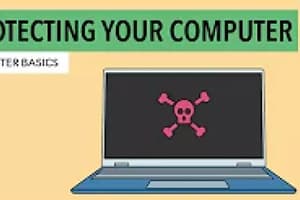Podcast
Questions and Answers
What is the primary intention of inserting malware into a system?
What is the primary intention of inserting malware into a system?
- To improve the confidentiality, integrity, or availability of the system
- To enhance the security checks of the system
- To optimize the system's operating speed
- To compromise the confidentiality, integrity, or availability of the system (correct)
What type of malware appears to have a useful function but has a hidden malicious function?
What type of malware appears to have a useful function but has a hidden malicious function?
- Virus
- Trojan horse (correct)
- Exploit
- Adware
What is the primary goal of an advanced persistent threat?
What is the primary goal of an advanced persistent threat?
- To spread malware to as many systems as possible
- To evade security mechanisms
- To target specific business and political targets (correct)
- To optimize system performance
What is the term for malware that replicates itself into other executable machine or script code?
What is the term for malware that replicates itself into other executable machine or script code?
What is the primary purpose of adware?
What is the primary purpose of adware?
What is an exploit?
What is an exploit?
What is a type of malware that can run independently and propagate a complete working version of itself onto other hosts on a network?
What is a type of malware that can run independently and propagate a complete working version of itself onto other hosts on a network?
What is the main purpose of a backdoor?
What is the main purpose of a backdoor?
What is the term for a malicious hacker tool used to break into new machines remotely?
What is the term for a malicious hacker tool used to break into new machines remotely?
What is the term for code that lies dormant until a predefined condition is met, and then triggers an unauthorized act?
What is the term for code that lies dormant until a predefined condition is met, and then triggers an unauthorized act?
What is the term for software that collects information from a computer and transmits it to another system?
What is the term for software that collects information from a computer and transmits it to another system?
What is the term for a type of malware that uses macro or scripting code, typically embedded in a document, to run and replicate itself into other documents?
What is the term for a type of malware that uses macro or scripting code, typically embedded in a document, to run and replicate itself into other documents?
Flashcards are hidden until you start studying
Study Notes
Malware Definitions
- Malware is a program inserted into a system, usually covertly, to compromise confidentiality, integrity, or availability of data, applications, or operating systems.
- Exploits are mechanisms that bypass normal security checks, allowing unauthorized access to functionality or systems.
Types of Malware
- Trojan horse: a program that appears useful but has a hidden, malicious function that evades security mechanisms.
- Advanced persistent threat (APT): cybercrime targeting businesses and political organizations using various intrusion technologies and malware.
- Virus: malware that replicates itself into other executable machine or script code, infecting the code and executing when run.
- Adware: advertising integrated into software, resulting in pop-up ads or browser redirection.
- Worm: a self-replicating computer program that infects other hosts on a network, often exploiting software vulnerabilities.
Malware Concepts
- Attack kit: a set of tools for generating new malware using various propagation and payload mechanisms.
- Auto-rooter: malicious hacker tools for breaking into remote machines.
- Zombie/Bot: a program activated on an infected machine to launch attacks on other machines.
- Backdoor/Trapdoor: code that installs additional malware on a compromised system, often included in the initial malware package.
- Drive-by download: an attack using code on a compromised website that exploits browser vulnerabilities to attack client systems.
Other Malware Concepts
- Flooders/DoS client: tools used to generate large volumes of data for denial-of-service (DoS) attacks.
- Keyloggers: capture keystrokes on compromised systems.
- Logic bomb: code inserted into malware that lies dormant until a predefined condition is met, then triggers unauthorized actions.
- Macro virus: a type of virus using macro or scripting code, typically embedded in documents, to replicate itself.
- Mobile code: software that can be shipped to heterogeneous platforms and execute with identical semantics.
- Rootkit: a set of hacker tools used after gaining root-level access to a computer system.
- Spammer: programs used to send large volumes of unwanted email.
- Spyware: software that collects and transmits information from a compromised computer.
- Classified malware: categorized by propagation methods and payloads, or by their need for a host program (parasitic code) or independence (worms, trojans, and bots).
Studying That Suits You
Use AI to generate personalized quizzes and flashcards to suit your learning preferences.




